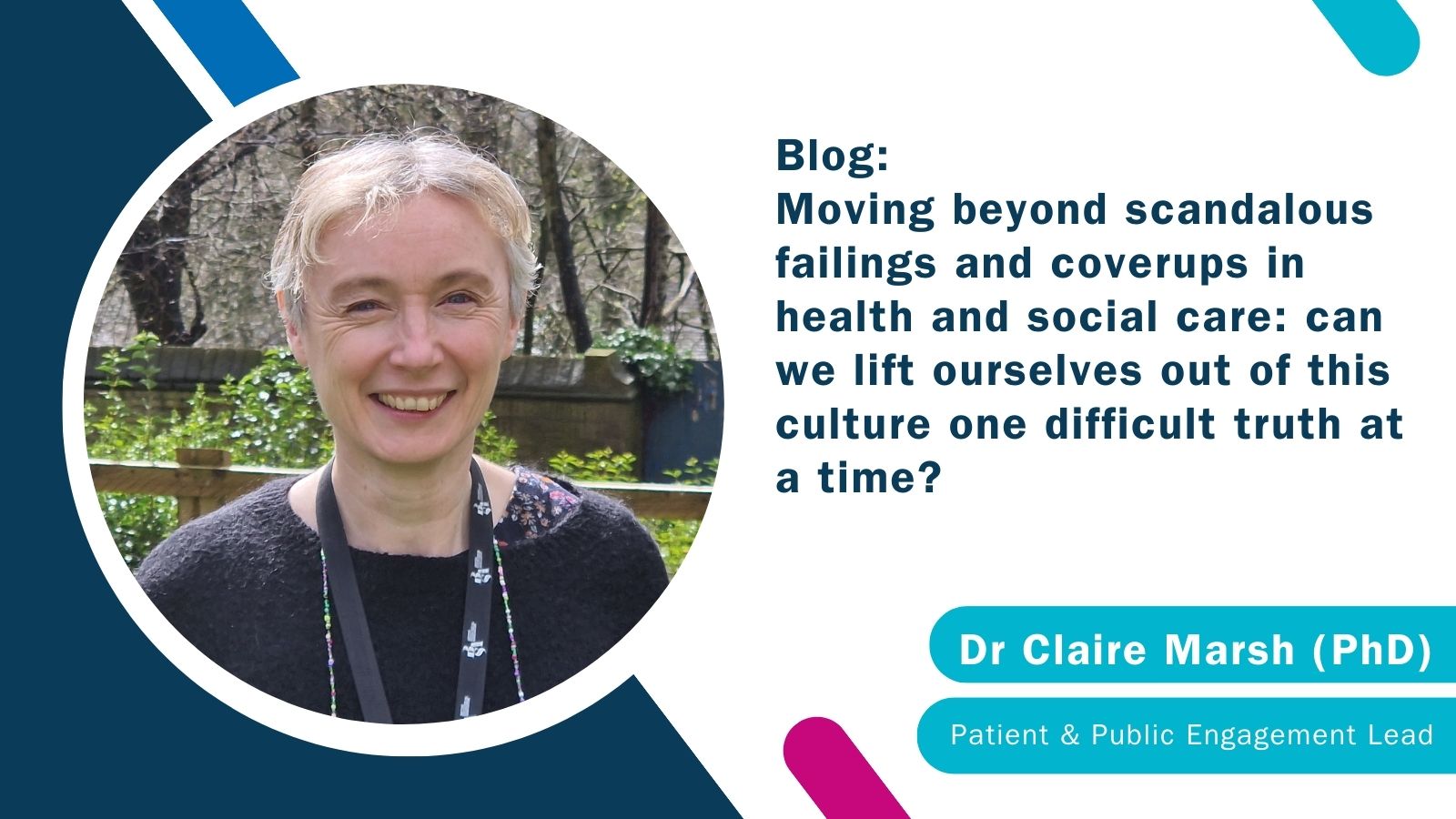‘Groundhog Day Strikes again’ was a term used by the Patient Experience Library[1] as it introduced its recently featured report into the failings of mental health services in Edenfield Centre, Greater Manchester. Starting with the Francis report into Mid Staffordshire in 2013, we have been dealt a succession of reports that document cultures of fear, blame and an inability for concerns to be effectively raised by staff and patients, and then dealt with (e.g. Morecambe Bay, Gosport, Shrewsbury & Telford, and East Kent). In each case, cultures of ‘non-listening’ were shown to have had catastrophic implications for patients, families, and staff. The collective despondency and despair at each publication is palpable.
Perhaps it is so hard to swallow because we do collectively know what better would look like. In academia, we have had analysis of why the ‘blunt end’ of organisations may become blind to the realities at the ‘sharp end’ by focusing their data analysis on what is ‘comfort seeking’ and not ‘problem sensing’ (Dixon Woods 2014). Psychological safety as an aspirational concept – ‘the belief that one will not be punished or humiliated for speaking up with ideas, questions, concerns, or mistakes, and that the team is safe for interpersonal risk taking’ – (Edmundson 1999) has gained international traction in healthcare. And practically, policies such as ‘Freedom to speak up’ have arrived to support whistleblowers.
Most recently, we have seen the launch of the Patient Safety Incident Reporting Framework (PSIRF). This seeks to encourage transparency by involving all those affected in incidents in compassionate ways that recognise that ‘humans are fallible’. There is also a shift from searching for a single cause (often attributed to a single person/team), to understanding the system context in which incidents can happen. Moving ‘from blame and punitive action, to continuous improvement and learning’ is the new mantra.
But will a new framework really be able to help address what seems a deeply intractable problem: how do we help staff and patients speak up about sub-standard care when, at the same time, the system (and its accountability drive) is demanding they ‘keep the show on the road’ and deliver safe, quality care at all costs? Our improvement work with patients and clinical teams over several years enabled us to publish summaries of how they experience this. In short, we know that achieving these dual aims is proving difficult for people at all levels:
- Patients largely accept the narrative that staff are overwhelmed, are grateful for what they can get, and ‘try not to bother busy staff and ask too many questions so can remain in-the-dark’.
- Individual staff take a head’s down approach where ‘some will remain quiet, anything for a quiet life but then they face the consequence when something goes wrong for a patient’.
- Frontline clinical leaders focus on motivating their teams whilst not knowing where to take their concerns: ‘As managers, we put on a real “come on we can do this”’ and we don’t moan publically. I voice my concerns to my matron but I know she can’t do anything about it either. So who can you say this to?’
- Senior leaders feel the burden of having to push impossible operational targets amidst a staffing/resource crisis that remains the ‘elephant in the room, and in a nutshell is the root of all problems’. Indeed as Gordon Messenger described with reference to his report into leadership in the NHS, ‘looking after people is now subordinated to the need to get things done’ (King’s Fund Leadership Conference 2023).
What is going to change this? Does PSIRF really offer a vehicle for overthrowing the unspoken collusion that NHS staff can keep doing the impossible whilst also pretending that standards can be maintained (and woe betide them if they can’t)? What would it look like if organisations started listening to staff and patient concerns and really admitting that within current constraints and context (e.g. increasing patient need, crises in GP services, mental health and social care provision) they just can’t deliver care to the standards we would all like?
The Patient Experience Library followed its ‘Groundhog Day’ despair with a more hopeful introduction to its next offering. In ‘Turning Point for Transparency?’ the way the ‘Independent review of Services at the University Hospitals Sussex Trust’ (surgical) was disclosed was deemed potentially groundbreaking. The Trust published it in full on its website, warts and all, alongside a commitment to the long-haul of cultural change over time that its difficult messages demanded.
We, at the Improvement Academy, wish to offer support for the same ambition of cultural change, continuous learning and improvement based on honesty, evidence, aspiration, and creative, sometimes risk-taking ideas. We too commit to the long-haul and offer support for:
- Gaining staff and patient insights for improvement via our interview and survey programme, comprising the Patient Experience Toolkit and the Teamwork and Safety Climate tool.
- Capturing learning from care given to patients prior to their deaths – both good and bad – in the Structured Judgement Review Programme.
- Taking a system approach to responding to issues, and joining our PSIRF learning community.
- Implementing improvements with Achieving Reliable Care for Safety (delays/flow), Safety Huddles (team safety culture), Implementation Science.
- Speaking out by creating open, fair and Just Cultures and supporting those affected by safety incidents (Second Victim).
- Personal development via our wide range of training and events that cover PSIRF, Quality Improvement, and many more of our programmes listed above.
[1] The Patient Experience Library is a user-friendly digital database of patient experience and involvement news, reports and survey data, provided via free search facility and unlimited downloads. Its featured reports have helped shaped this blog.
